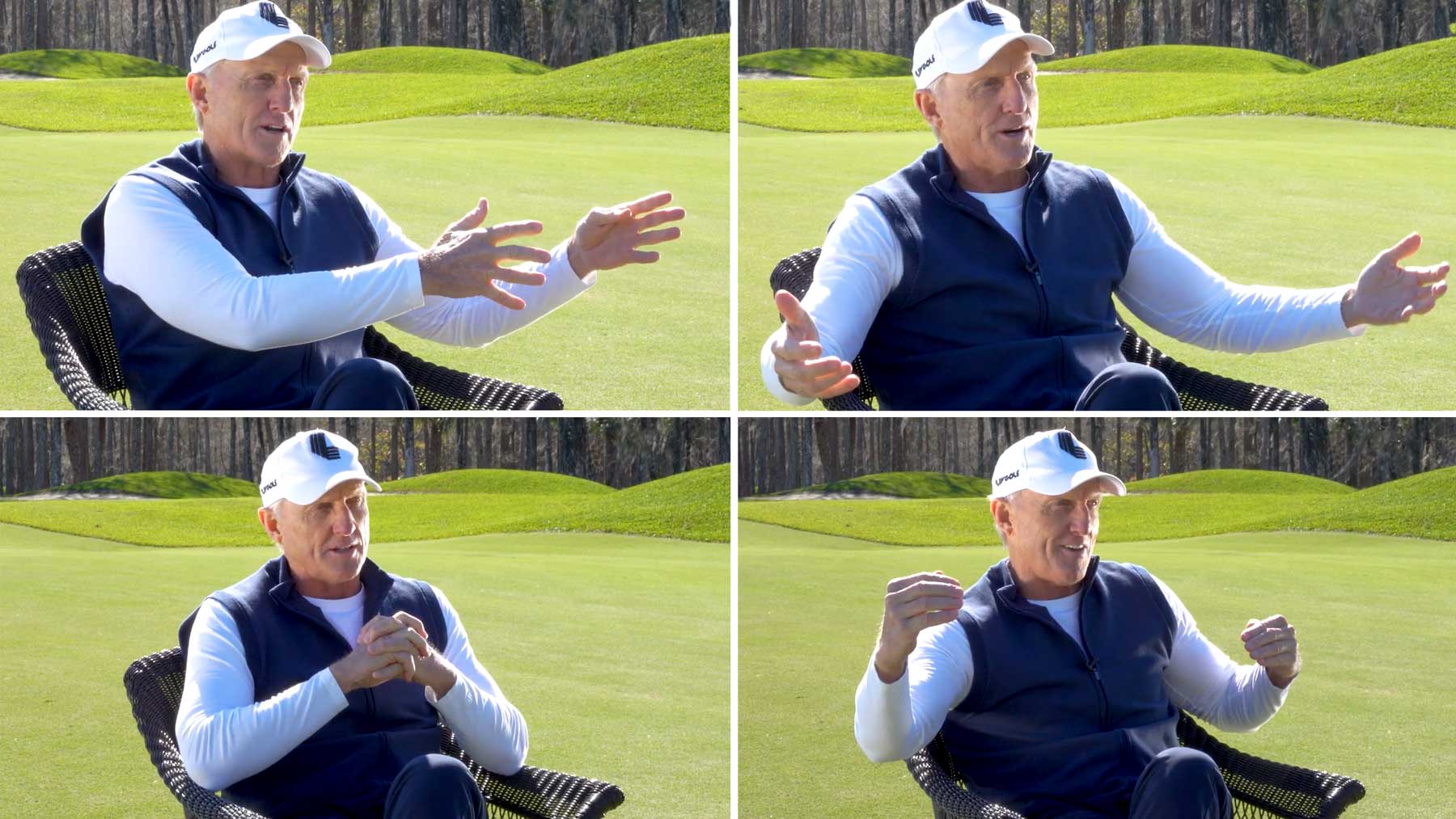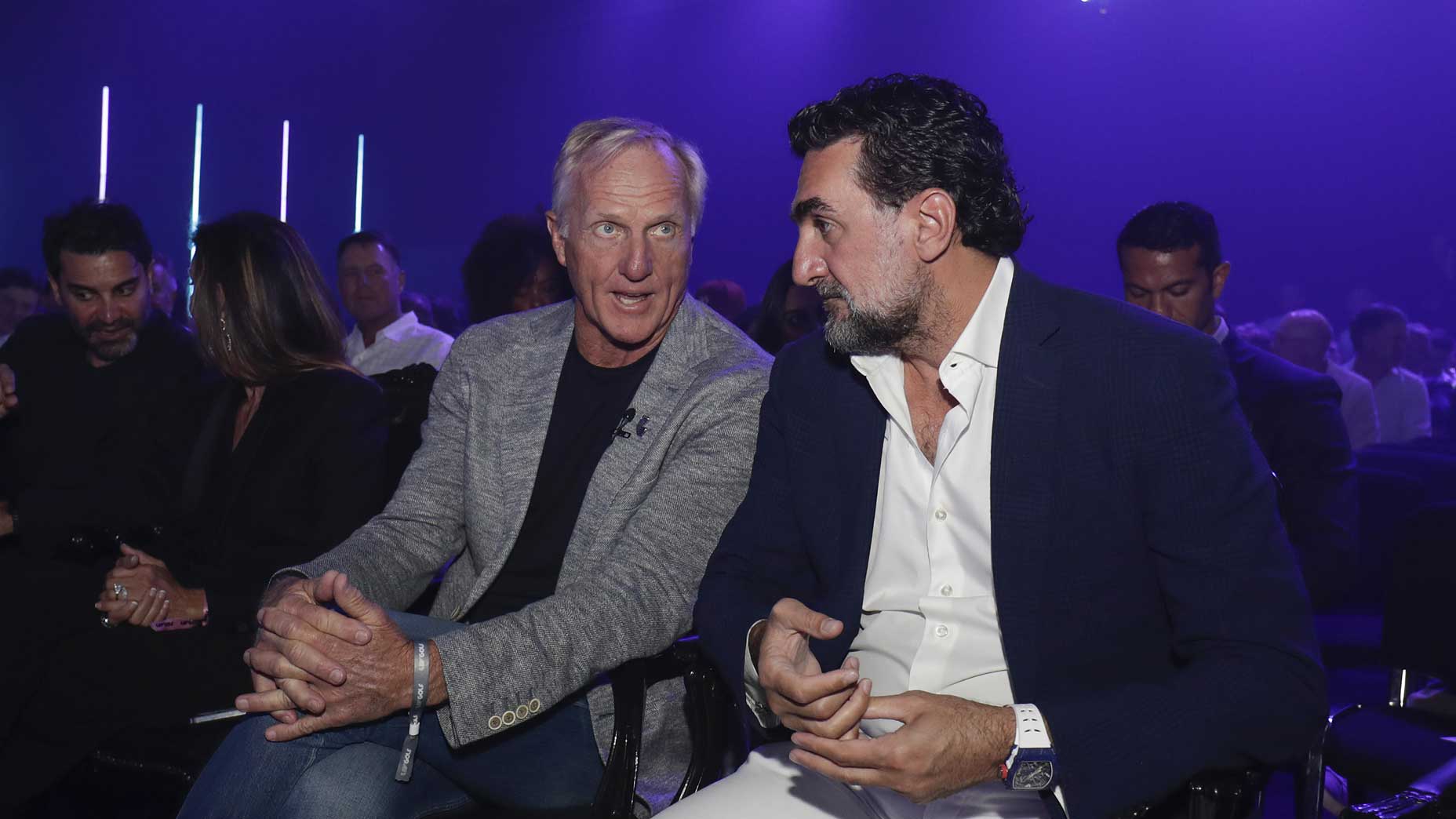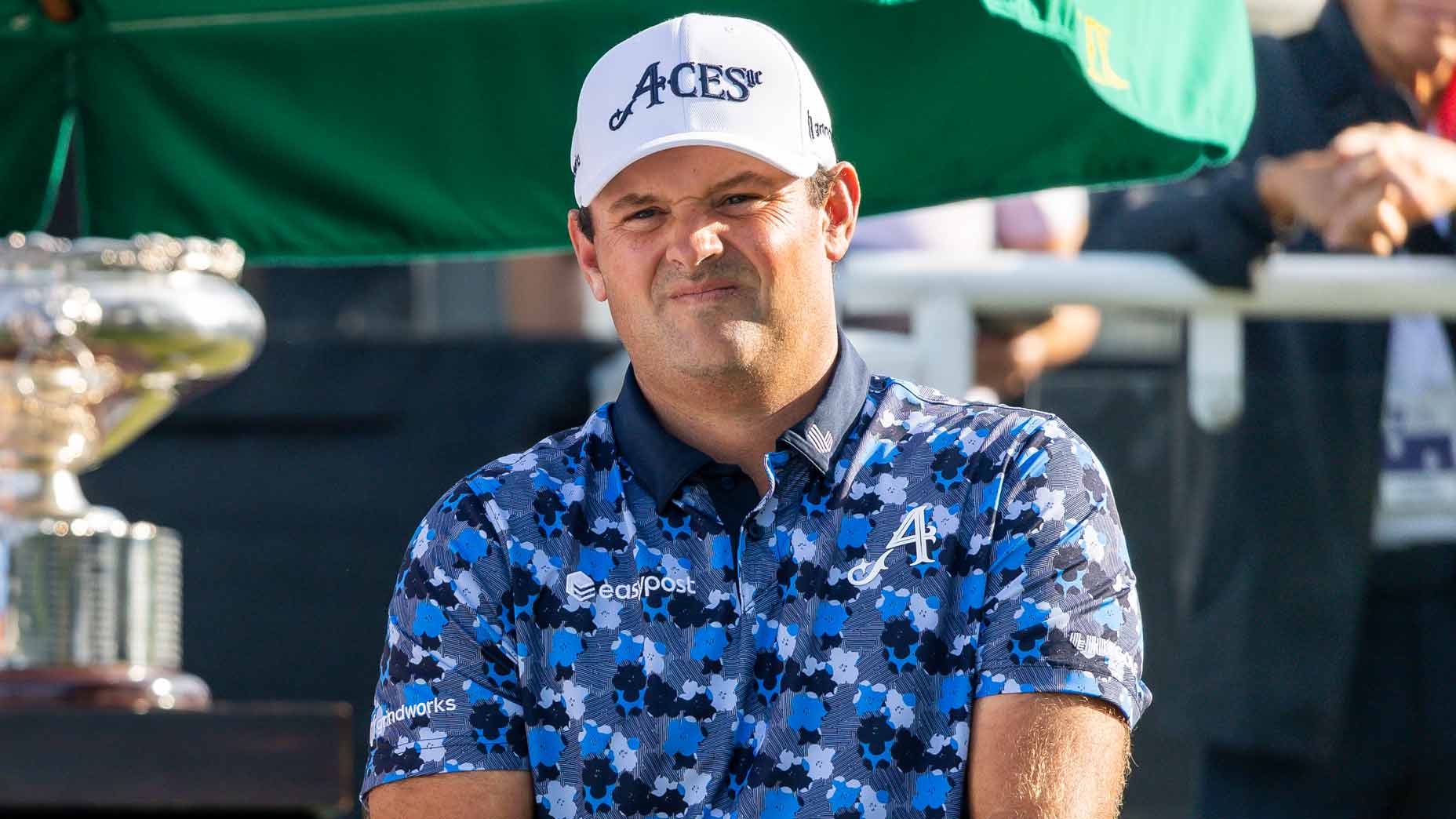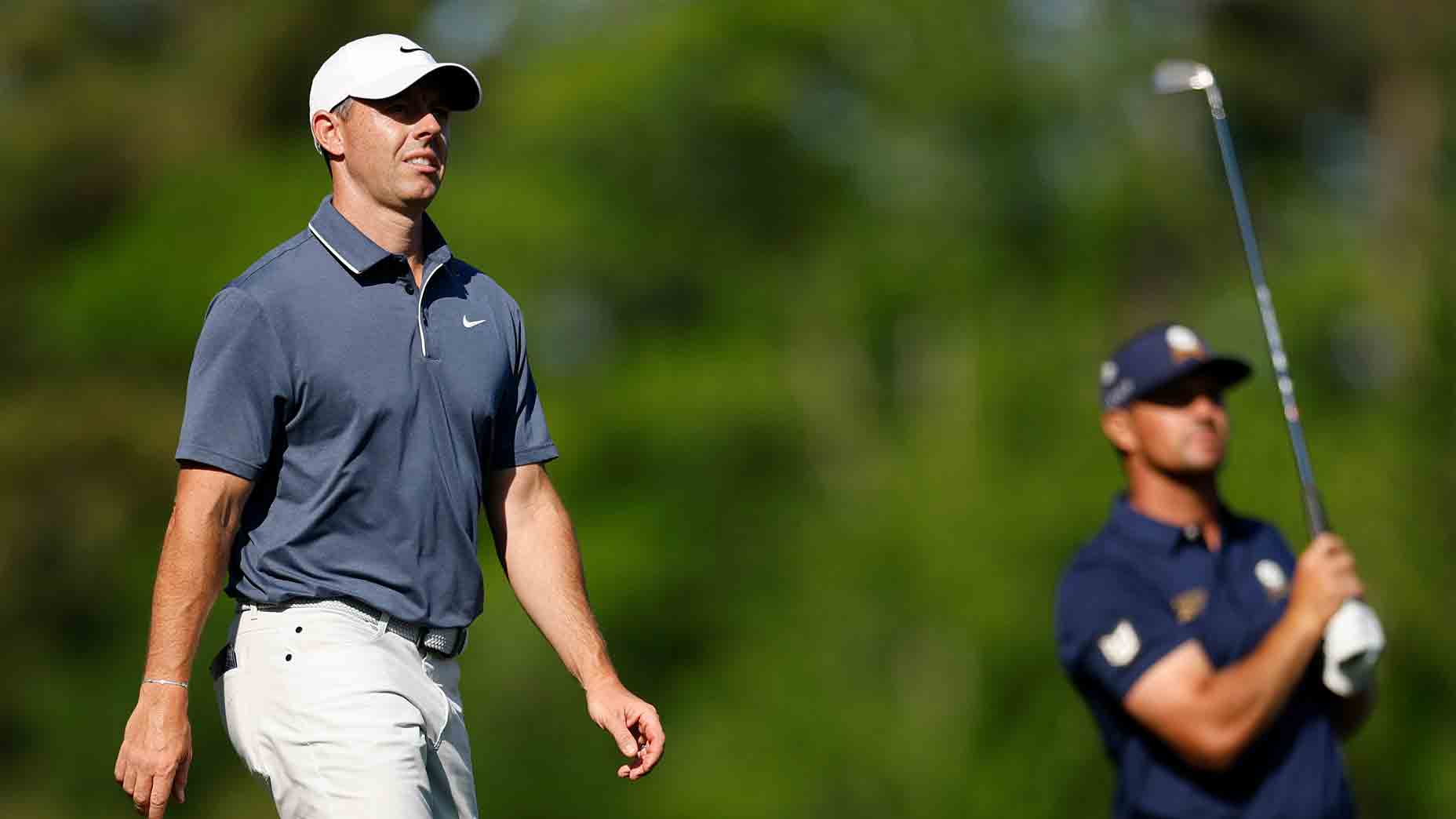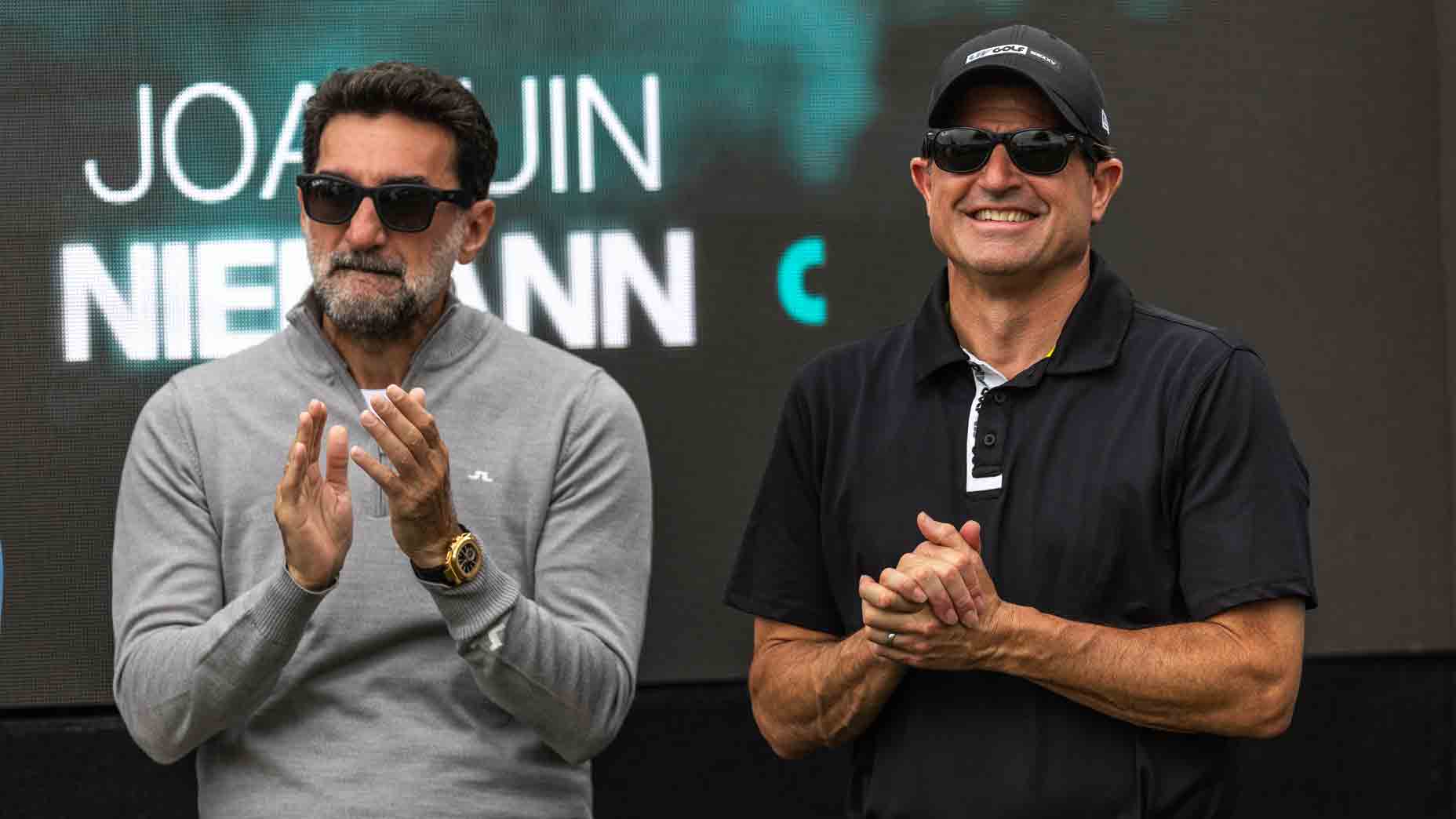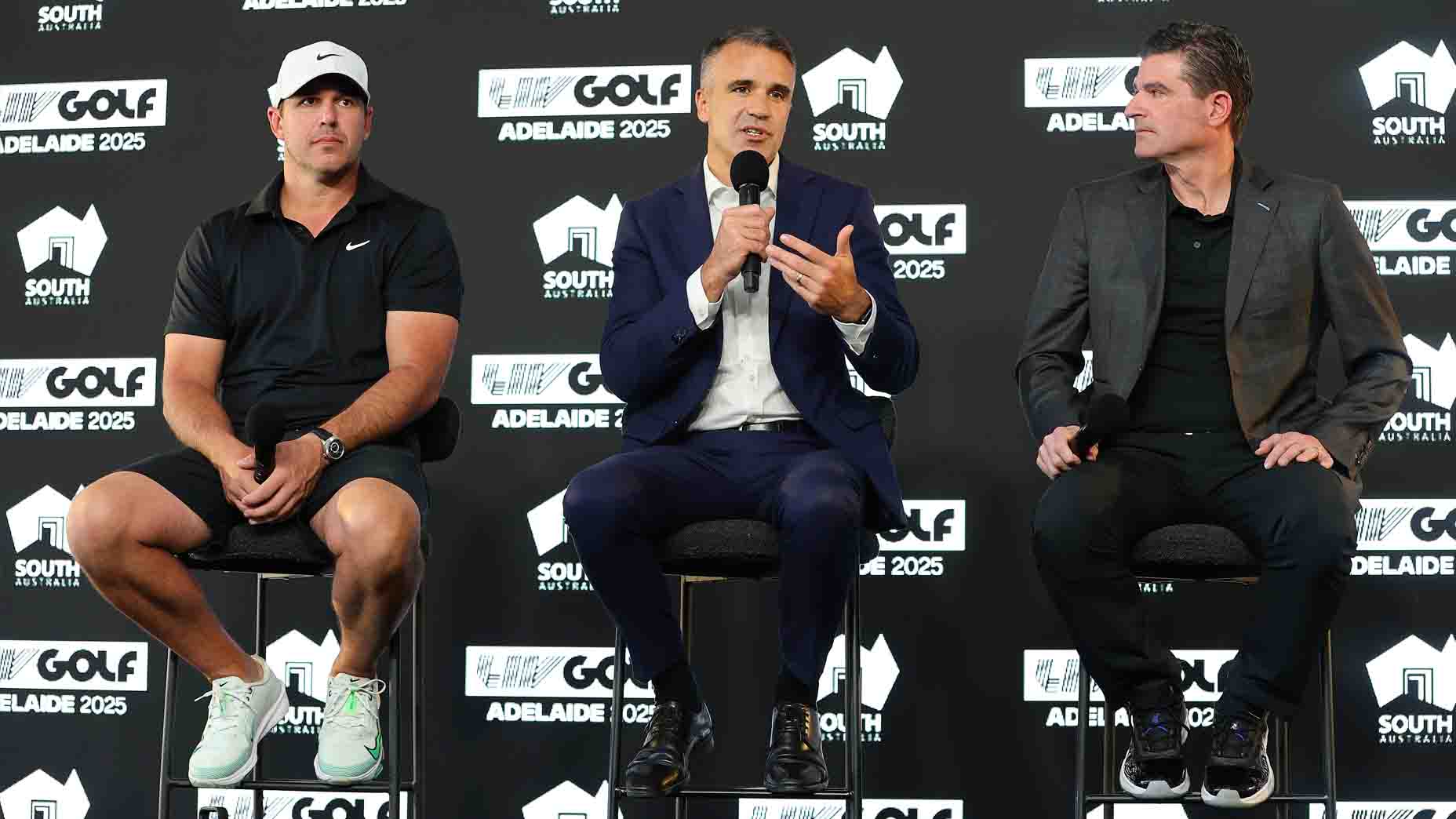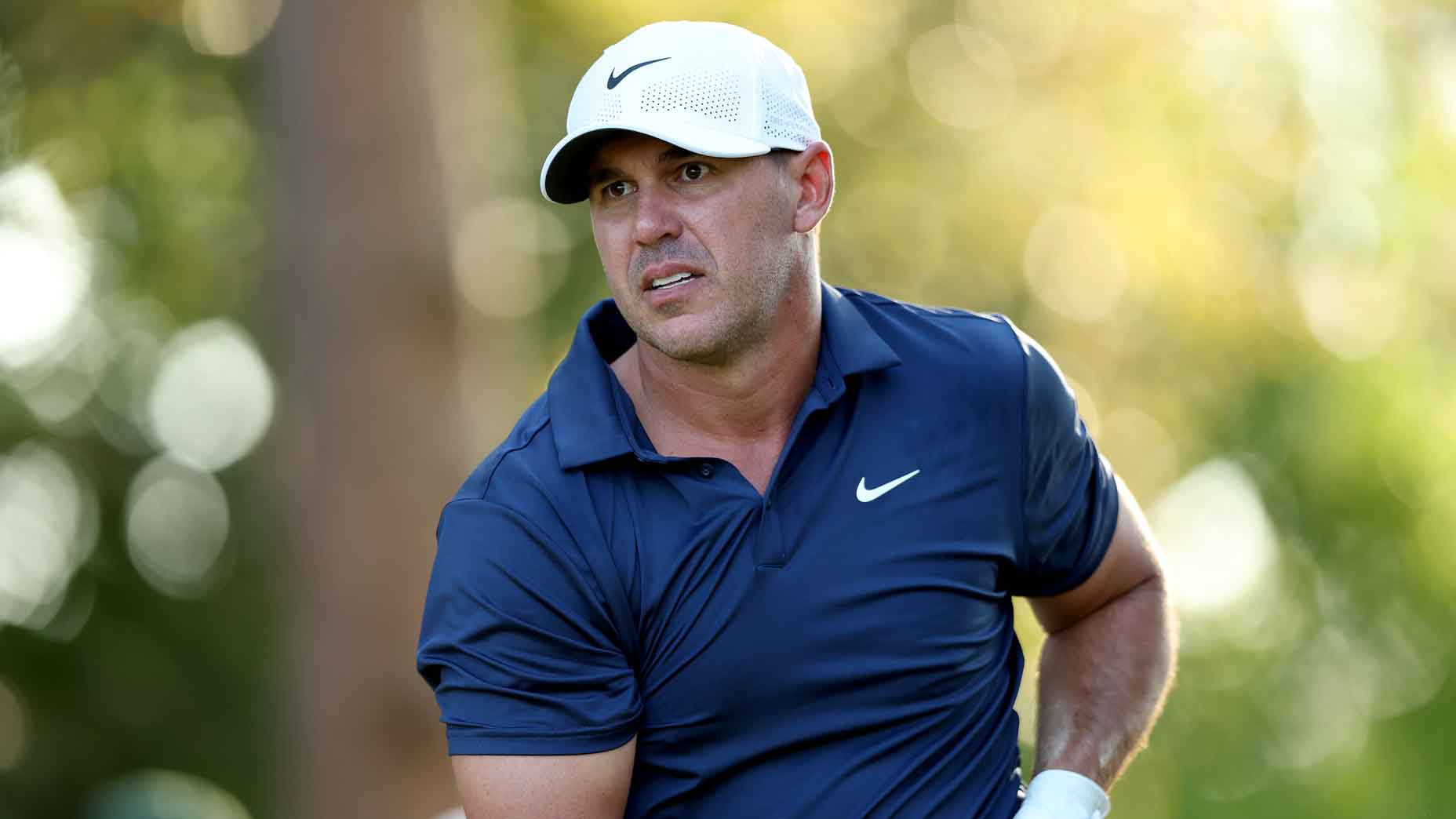An economist, professor and best-selling author says LIV Golf will not survive “more than a couple years.”
Steve Levitt’s opinion comes after he talked with Greg Norman, LIV’s CEO, on his podcast, People I (Mostly) Admire, where Levitt and Norman discussed several topics centered on the Saudi-backed series, including how it could be profitable. In a summary after the interview, though, Levitt said that, while the competition has been good for the established PGA Tour, LIV would eventually fail, as he didn’t believe in LIV’s team model.
For clarity, here is Levitt’s complete takeaway (and you can listen to the podcast here):
“Is Greg Norman’s story believable? Is LIV Golf making the world a better place? Will the franchise model unlock enormous value, making the upfront investment worthwhile? On the question of LIV Golf making the world a better place, my own personal opinion is that yes, competition is good. It spurs innovation. And, ultimately, I suspect it will be a benefit to golf fans. Because not only is LIV Golf trying out all sorts of new things, but the PGA Tour is innovating also, like with the new Monday night team matches, slated to start in 2024.
“On the question of LIV Golf’s economic viability, well, there I’m a little more skeptical. I just don’t see the franchise model working, at least in its current form. In that case, I don’t think LIV will survive more than a couple years. But I’m also the one who said Amazon would never make a profit and that electric vehicles, they’d never be viable, and that Bitcoin, when its price reached 10, it was definitely a bubble. Even after the crash in 2022, the price of Bitcoin is 2,000 times higher today than when I confidently declared it a bubble. So my opinion is probably worth, well, nothing.”
That may be true. Still, Levitt is also a qualified speaker on economics — the economist is the co-author of Freakonomics, and is the William B. Ogden Distinguished Service Professor of Economics at the University of Chicago — and about 12 minutes into the podcast, he asked Norman about LIV’s “pathway to profitability.”
To note, LIV has been bankrolled by the Saudi Arabian sovereign wealth fund. But as the series starts its second season, it is also looking to build support around its 12 franchises, which, in turn, can be sold to sponsors.
On the podcast, Norman focused on that idea, though he was also pressed on how team interest could be developed in a traditional individual sport.
‘We are not going anywhere’: Greg Norman on LIV Golf’s viability, critics, futureBy: Josh Sens
“Steven, let me help you unpack this, right?” Norman said on the podcast. “So we have 12 principal players. Those 12 principal players own 25 percent of that franchise. The league owns 75 percent of it. Now that principal player is responsible for his own P&L over his team. No different than any NFL team, right? They’re responsible for their own P&L — profit and loss. So he has to bring in individuals to help him manage his team. They could come from the agents or agencies that represented them over a period of time, or they could be outside, third-party individuals, or he could go source these individuals to come in to work on that. So they’re going to bring in sponsorship to the team.
“I can tell you the excitement of my principal players of the league has been elevated exponentially because now they see long-term value of understanding how to build out this franchise value.”
A few minutes later on the podcast, Levitt then asked Norman why he thought LIV’s team format would work in terms of interest, noting that past attempts to turn individual sports into team sports have not been successful. For clarity again, here is their exchange:
“A skeptic would say past attempts to turn individual sports into team sports have not been very successful,” Levitt began. “I mean, I’m just thinking about the World Team Tennis league, which has been around since the 1970s, but I don’t think has been very high-profile. And I think about college golf, which as a team sport garners almost no attention. Why do you think that LIV’s team version will break free of this difficulty that has hindered individual sports being viewed as team sports?”
“I think the investment dollars that are sitting there that’s been allocated to LIV Golf investments; the investments we’re making in golf on a global basis,” Norman said. “An interesting fact, Steven: The aging demographic of the people who watch the PGA Tour is very high. It’s 67 years old, 66-and-a-half, 67 years old.” (Editor’s note: Norman failed to say where he got this information.)
PGA Tour alleges Greg Norman is LIV’s CEO ‘in name only’ in new filingsBy: Sean Zak
“Wow. So I’m on the young side of the PGA Tour watchers,” Levitt said.
“So you’re on the young side,” Norman said. “And do you know what LIV did? Because of its format, because of its fan excitement, 60 percent of people who watched us in 2022 were under 45.” (Editor’s note: Norman failed to say where he got this information.)
“Hmm,” Levitt said. “That’s interesting, yeah.”
“So we understand the opportunity,” Norman said, “and we completely understand the total neglect, the monopolist, like the PGA Tour harboring their same tiny little box that they lived in for whatever they wanted to do and keep control of that, they just didn’t have the foresight to go out there and look where this unlocked value really sat. Am I happy for my players? Hundred percent, 1,000 percent. But I’m happier for the fans out there.”
Levitt then went into centering teams around countries. In a look at LIV’s teams during last weekend’s event, five of the 12 — the American-based 4Aces, HyFlyers and Smash, the South African-based Stinger and the Australian-based Ripper — had players all from the same country.
“OK, so I got to say, I’m still skeptical of the team side,” he said. “And in particular, one of the things that surprises me is that every example I can think of where individual sports generated team-based excitement were tied to national boundaries. So you got the Olympics, the Ryder Cup in golf, the Davis Cup and the Billie Jean King Cup in tennis. I would’ve expected that you would’ve organized your LIV franchises around geography. I could imagine Americans being really excited to see who makes the American No. 1 team versus who’s relegated to the No. 2 team or the No. 3 team, and Americans being furious when the South Africans or the Swedes beat out the American team. But you didn’t do that.”
‘Their tour is meaningless’: Nick Faldo rips LIV Golf, their ratings, Greg NormanBy: Nick Piastowski
“We do have international teams,” Norman said. “We have a South African team. Some are all over the place. I think that’s the beauty of our foresight, of our model, that we are capturing this fan base, this fandom we’re creating around the world. It’s not just specifically in one country. The NFL is specific to basically the region of the United States, right? We wanted to broaden it out. Golf is a global sport, has been for a century, and it’ll continue to be that way. The Asian Tour was a sleeping giant. So one of my first initiatives as I came in is we invested $300 million into the Asian Tour to wake up this sleeping giant of this incredible pool of talent that’s sitting there. This incredible pool of corporate dollars sitting there waiting.
“But still it surprises me, given that perspective, I’m just surprised that you didn’t more self-consciously build the franchises around geography to play up on this element,” Levitt said. “Now, certainly, there are teams — the South African team. But most of the teams — I’m just looking right now at the list — are mixed, they’re all sorts of mixed up and don’t have any really clear geography.”
“OK,” Norman said, and the conversation changed.
Editor’s note: To listen to the complete podcast, please click here.

